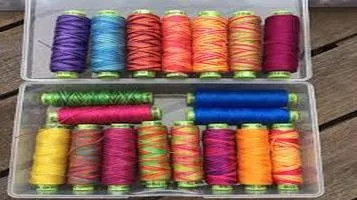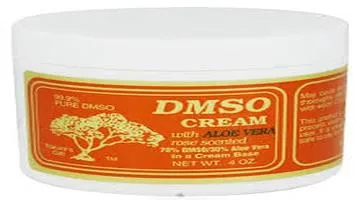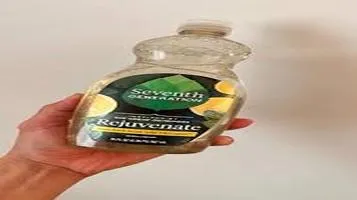Quilting Thread: A Comprehensive Review
Quilting thread is a specialized type of thread used primarily for quilting projects, where durability and appearance are paramount. Made from fibers like cotton, polyester, or a blend of both, quilting thread is designed to withstand the high tension and wear that quilts endure over time. It is typically stronger and slightly thicker than regular sewing thread, ensuring robust seams and long-lasting quilts. Available in a wide range of colors, quilting thread can be chosen to blend with the fabric or to stand out as a decorative element, adding texture and detail to the quilt’s design. Some quilting threads are also treated to glide smoothly through fabric layers, reducing the likelihood of tangling and breakage, which enhances the quilting experience for both beginners and professionals.

Quilting is an art that combines creativity, patience, and precision. At the heart of this craft lies the humble quilting thread, an essential component that can make or break your quilting project. With numerous brands and types available, choosing the right quilting thread can be overwhelming. This review delves into the various aspects of quilting thread, examining its types, quality, and performance to help quilters, both novice and experienced, make informed decisions.
Types of Quilting Thread
Quilting threads come in various materials, each with its distinct characteristics. The most common types include cotton, polyester, and a blend of the two.
1. Cotton Thread: Cotton threads are a traditional choice for quilting. They are strong, have a natural sheen, and are available in a wide range of colors. Cotton threads tend to blend well with cotton fabrics, making them a popular choice for quilters who prefer a consistent look. However, they can be prone to breakage under high tension or during machine quilting.
2. Polyester Thread: Polyester threads are known for their strength and durability. They are less likely to break compared to cotton threads, making them ideal for machine quilting. Polyester threads also have a slight stretch, which can be beneficial for quilts that will be used frequently or washed often. One downside is that they can have a shinier appearance, which may not be desirable for all projects.
3. Cotton-Polyester Blend Thread: This type of thread combines the best of both worlds. It offers the natural look of cotton with the added strength and elasticity of polyester. Cotton-polyester blend threads are versatile and suitable for both hand and machine quilting.
Quality and Performance
The quality of quilting thread can significantly impact the outcome of a quilt. Here are some factors to consider when evaluating thread quality:
1. Thread Weight: Quilting threads come in various weights, indicated by a number. Lower numbers denote thicker threads, while higher numbers indicate finer threads. Choosing the right thread weight depends on the desired look and the type of quilting. For example, a 40-weight thread is thicker and more visible, while a 50-weight thread is finer and more subtle.
2. Thread Ply: Ply refers to the number of strands twisted together to make the thread. Two-ply threads are common for quilting, but three-ply threads offer extra strength and durability. Higher ply threads are less likely to fray or break, especially during machine quilting.
3. Colorfastness: It's essential to choose threads that are colorfast to prevent bleeding or fading over time. High-quality threads undergo rigorous testing to ensure their colors remain vibrant through multiple washes.
4. Lint Production: Threads that produce a lot of lint can clog up your sewing machine and create a mess. High-quality threads are typically low-lint, ensuring a smoother sewing experience and less maintenance for your machine.
Popular Brands
Several brands are renowned for their high-quality quilting threads. Some of the most popular ones include:
1. Aurifil: This Italian brand is a favorite among quilters for its exceptional quality and wide range of colors. Aurifil threads are made from long-staple Egyptian cotton, which ensures strength and minimal lint production. They offer various weights, with their 50-weight thread being particularly popular for both hand and machine quilting.
2. Gutermann: Known for its durability and consistent quality, Gutermann offers a variety of threads suitable for quilting. Their threads are highly resistant to breakage and come in a vast array of colors. Gutermann's cotton and polyester threads are both excellent choices for quilting projects.
3. Superior Threads: This brand lives up to its name by providing superior quality threads designed specifically for quilters. Superior Threads offers a range of products, including their popular King Tut line made from extra-long staple cotton. These threads are known for their low lint production and vibrant colors.
4. Coats & Clark: A well-established brand, Coats & Clark offers reliable quilting threads at an affordable price point. Their Dual Duty XP line, a cotton-wrapped polyester core thread, is particularly popular for its strength and versatility.
Conclusion
Choosing the right quilting thread is a crucial step in ensuring the success of your quilting project. Cotton, polyester, and cotton-polyester blend threads each have their unique advantages, and the choice ultimately depends on the specific needs of your project. Factors such as thread weight, ply, colorfastness, and lint production all play a role in determining thread quality.
Brands like Aurifil, Gutermann, Superior Threads, and Coats & Clark have established themselves as leaders in the quilting thread market, offering products that cater to various preferences and requirements. By investing in high-quality threads, you can achieve beautiful, durable quilts that stand the test of time.
In conclusion, while the world of quilting threads may seem vast and complex, understanding the key characteristics and qualities can help you make informed choices. Whether you're a seasoned quilter or just starting, selecting the right thread will enhance your quilting experience and contribute to the creation of stunning, heirloom-quality quilts.






